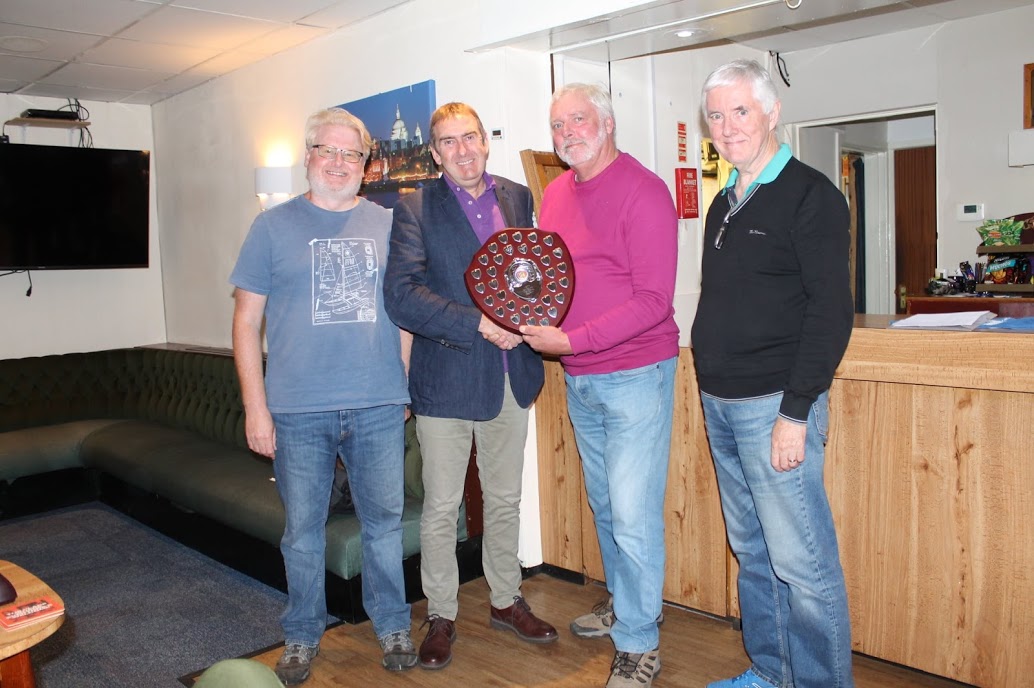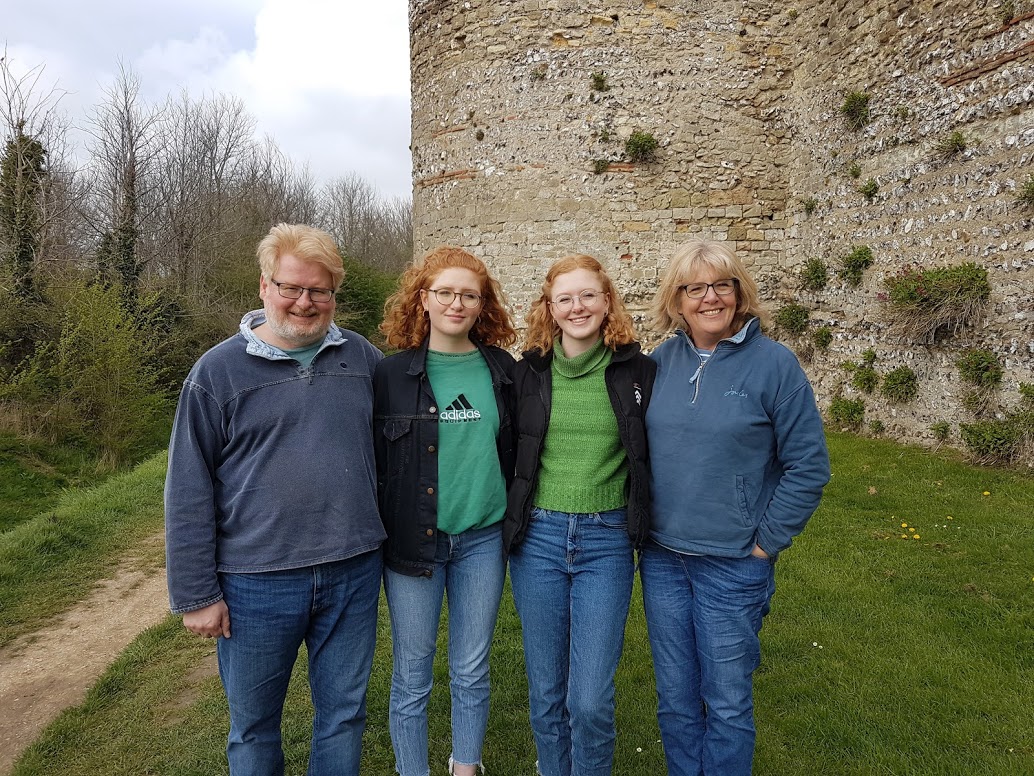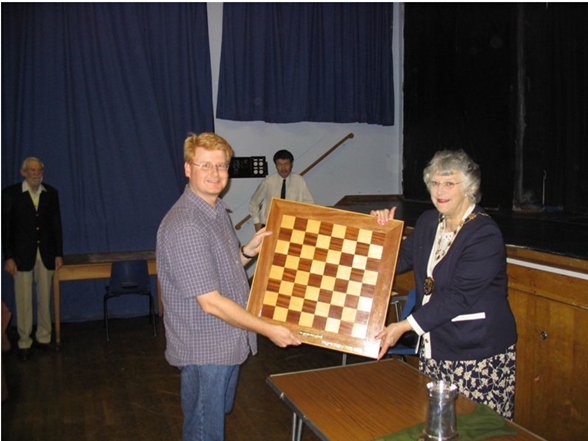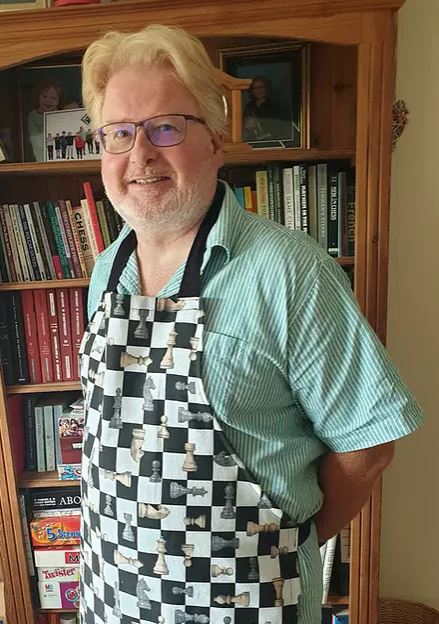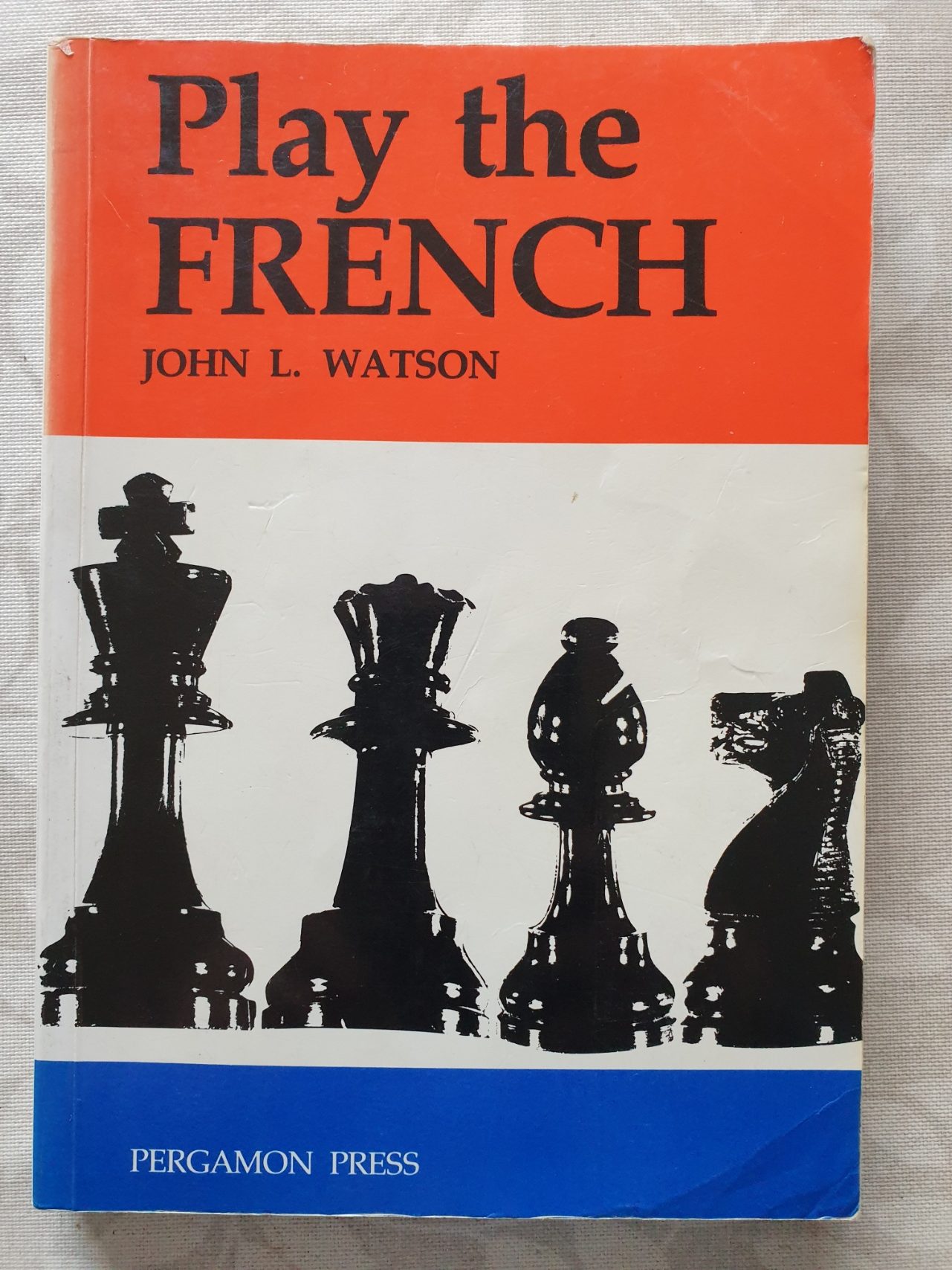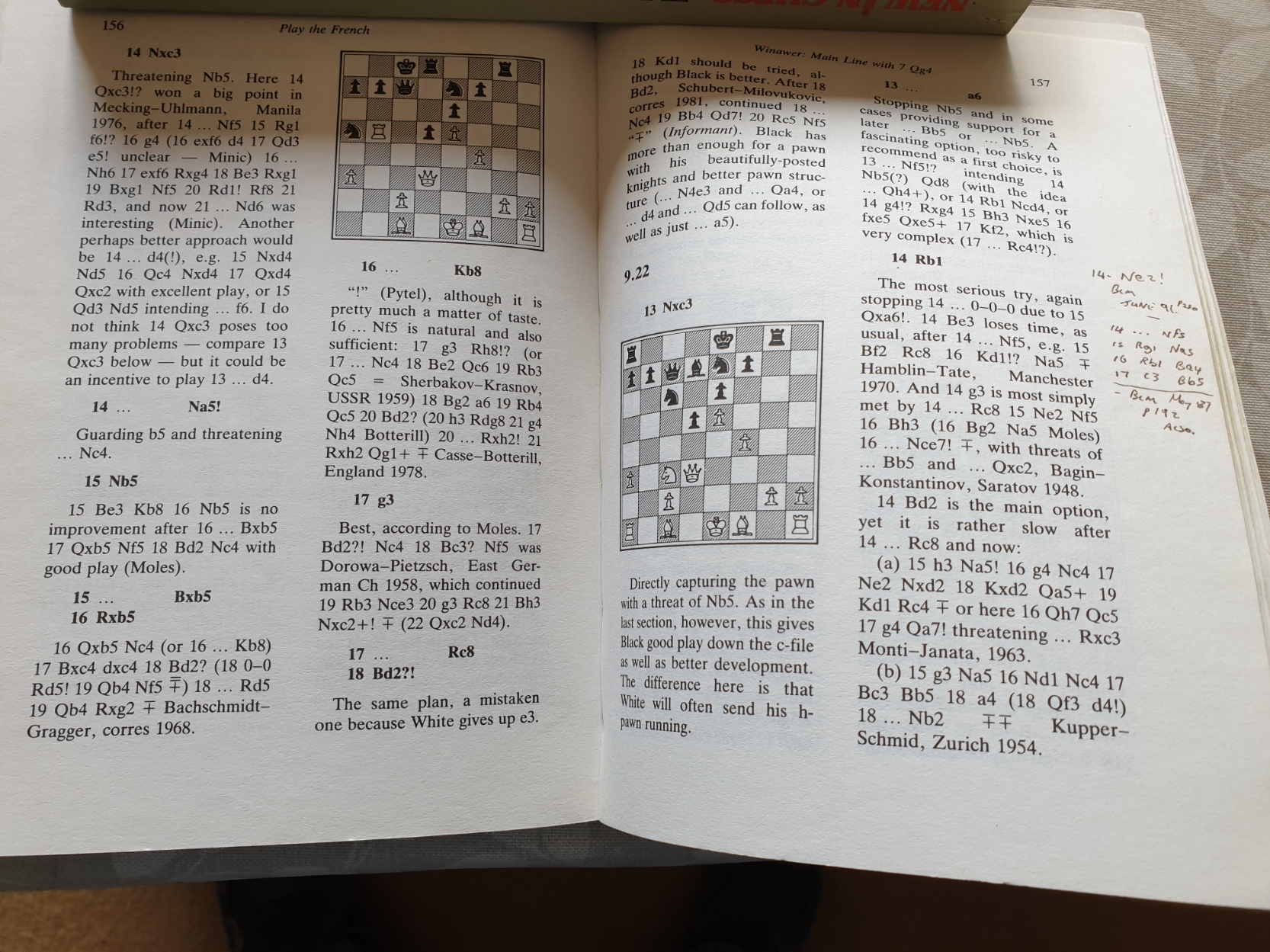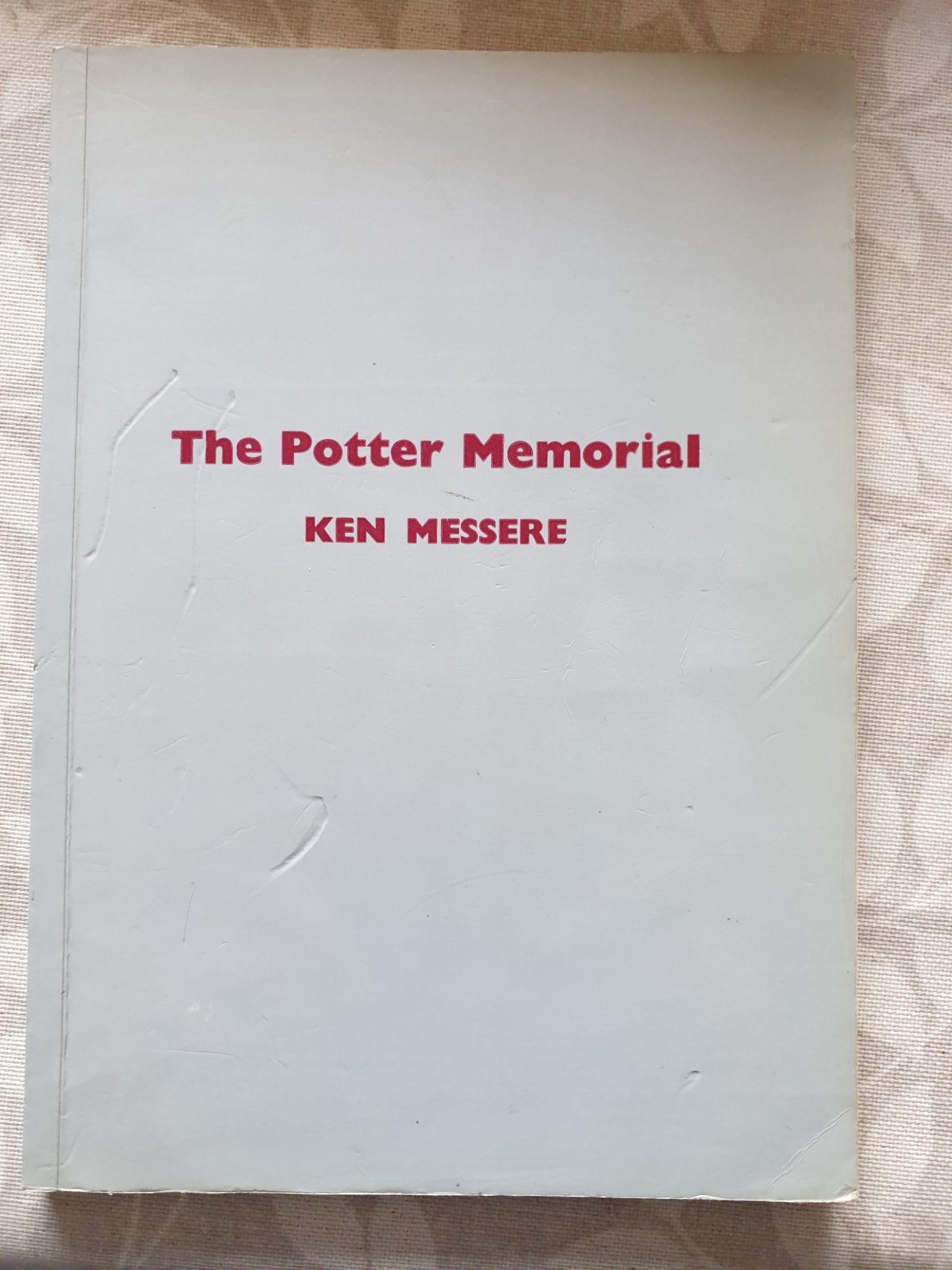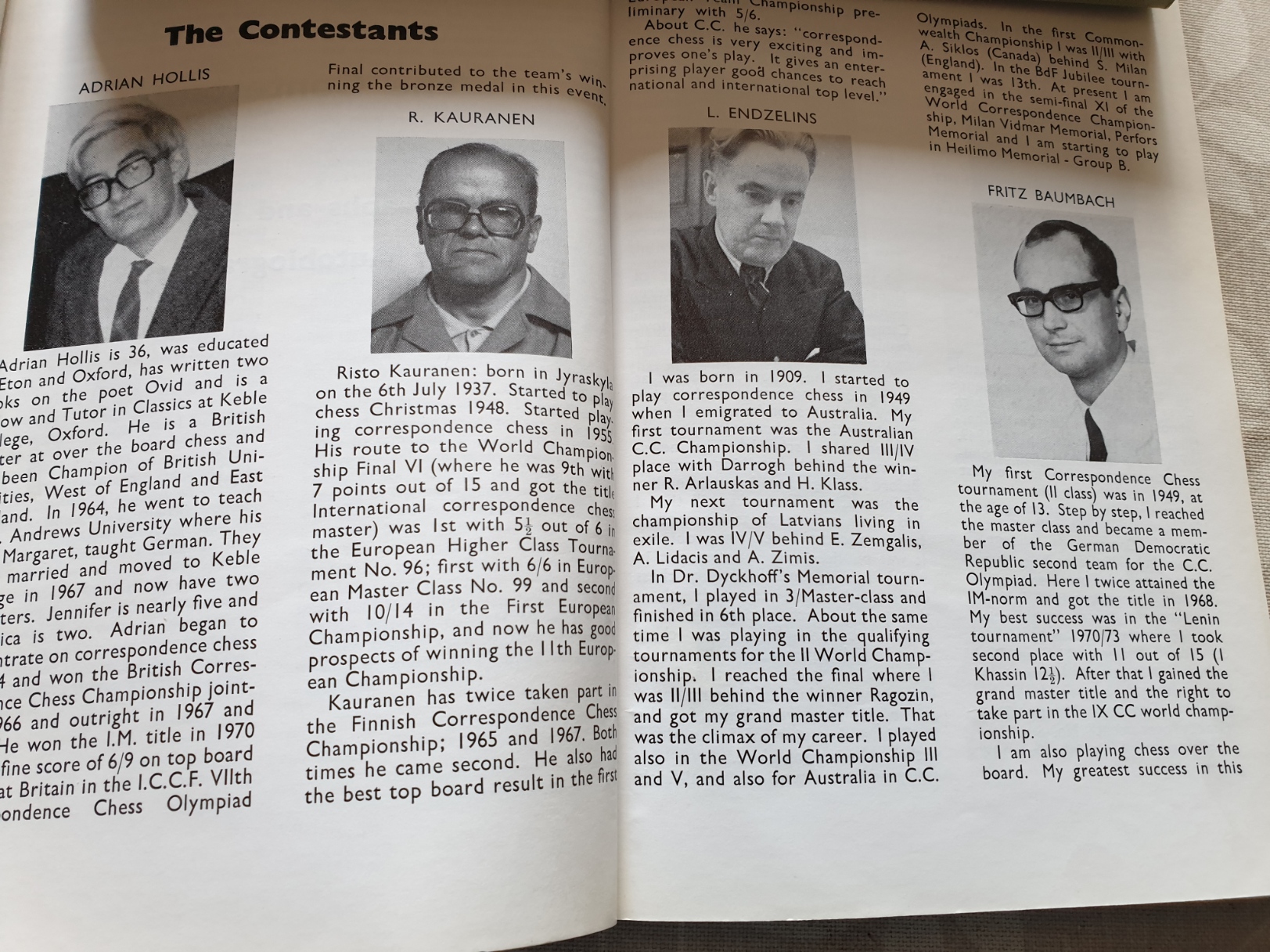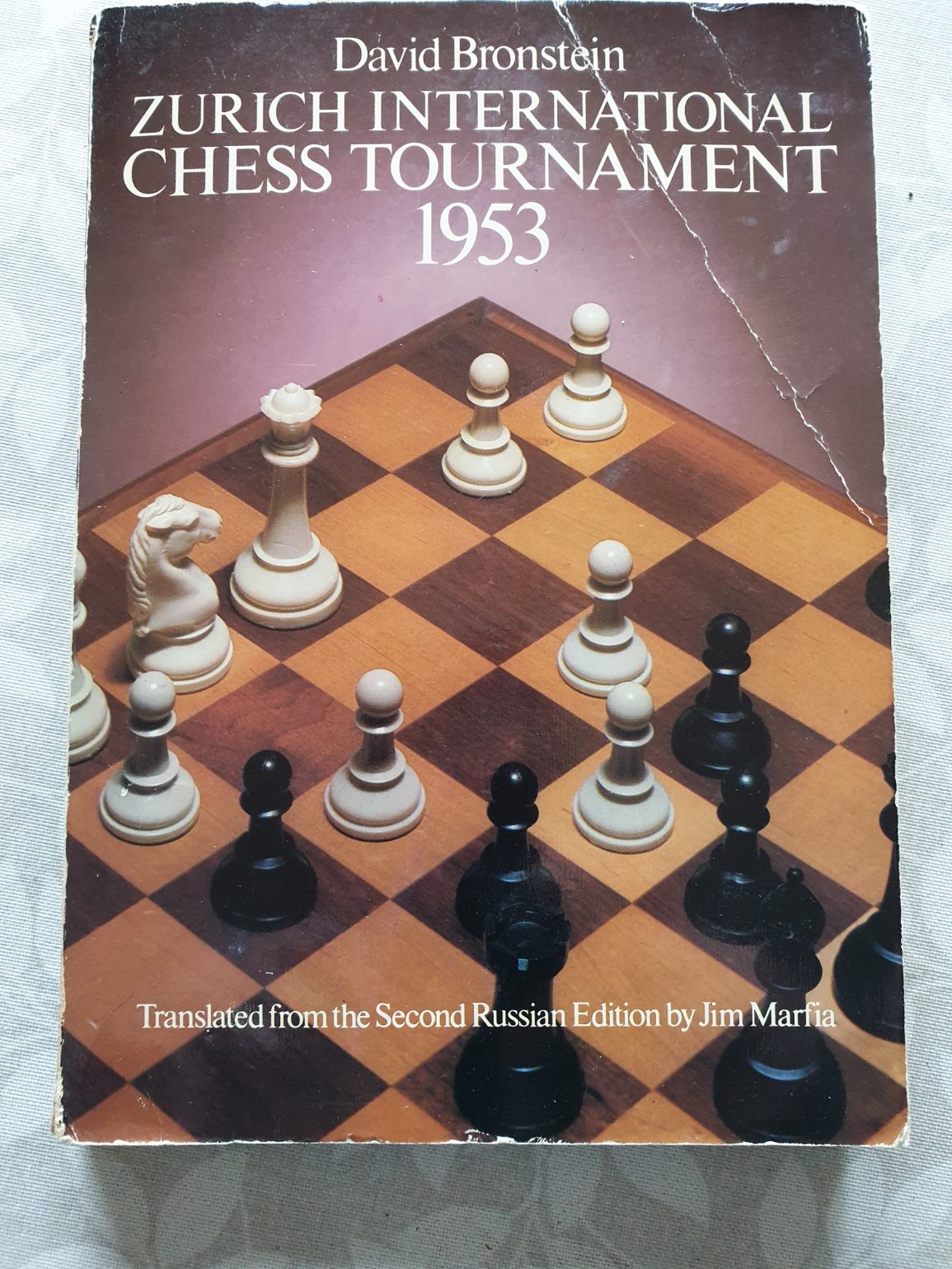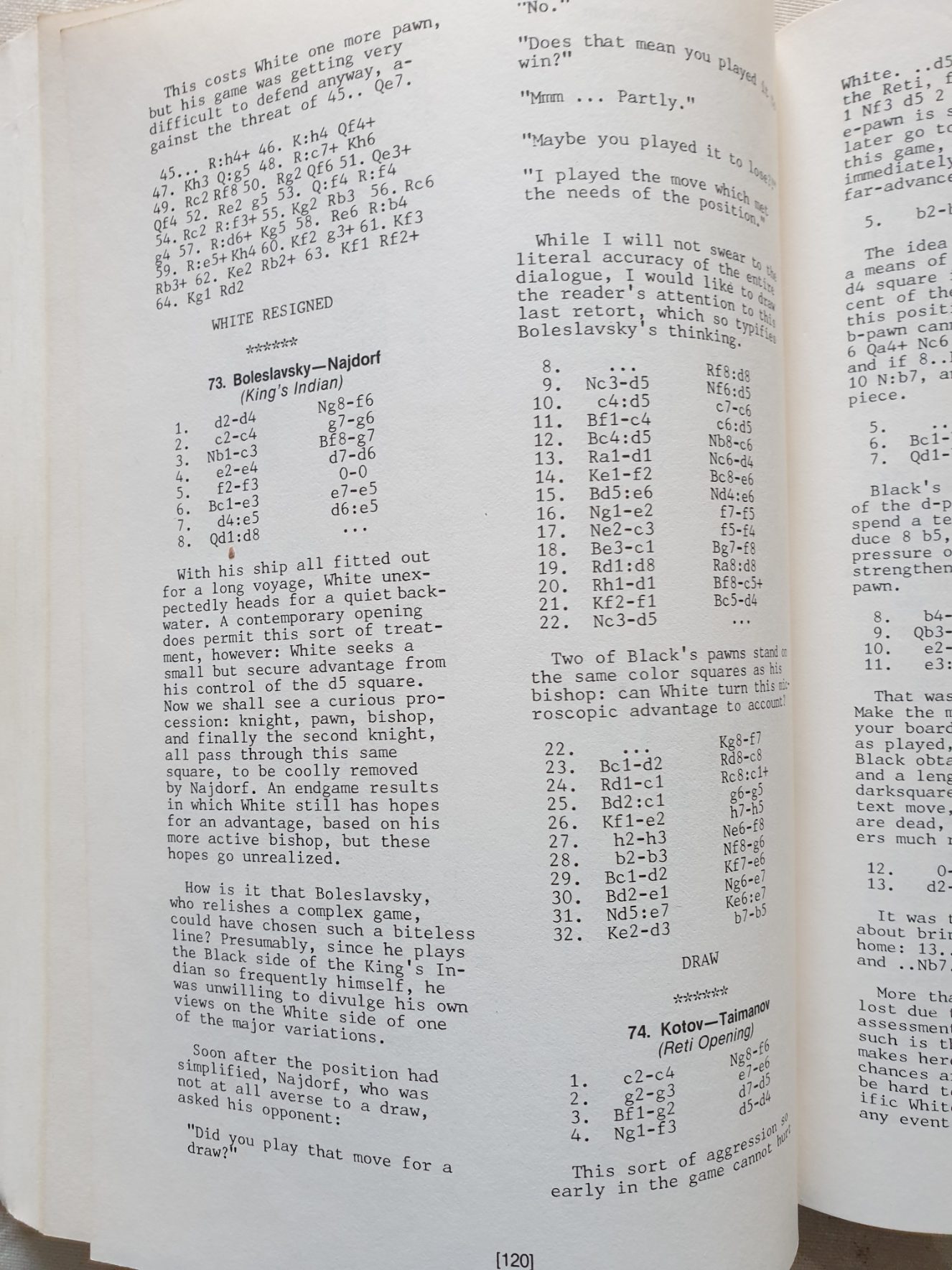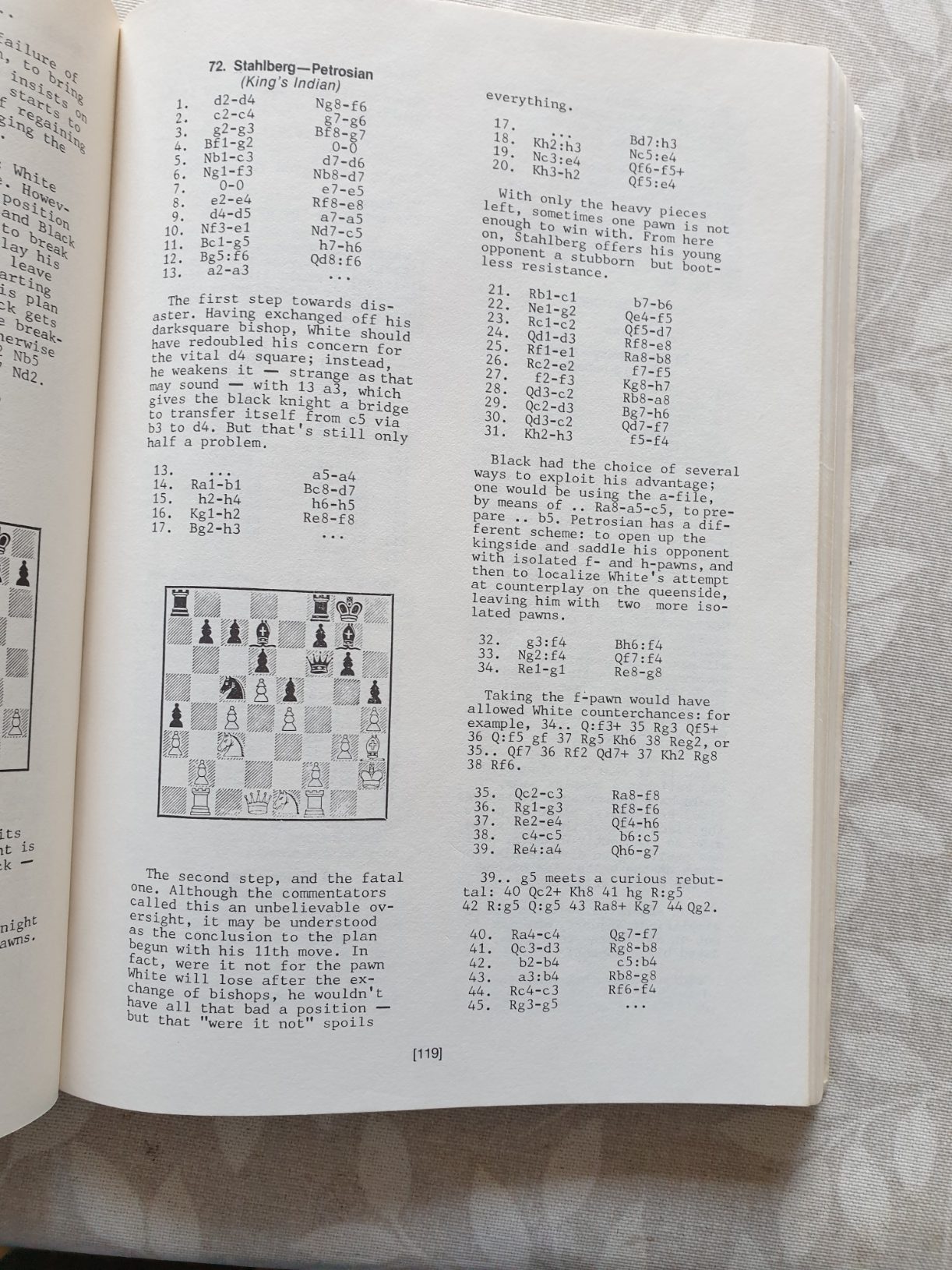-
What are you early memories of chess?
-
Playing against my Father who taught me how to play. He never played for a club, or seriously, but was certainly able to beat me for a long time. When I managed to draw a game against him, we stopped playing as he did not like to lose. When he worked abroad in Saudi Arabia, he bought me a chess computer. This was probably in 1979 or 1980 and I played against this a lot. It would not have been strong, and I think there was one forcing line where I could win very easily. It was a bit of a regret that at this age I did not join a chess club, as I think this would have allowed me to become a much stronger player.
A bit later I dabbled in correspondence chess and also played against friends and I think this helped my game no end, as it allowed me to learn some openings and study positions in more detail.
-
At what age did you join a chess club?
-
I think I visited the Cricketers Arms when I was 21 and played a few friendly games, but never really played seriously. Those that remember the Cricketers Arms at this time may remember Clive Cable who was the driving force behind the club at this time. I contacted Clive again a couple of years later and started playing at the club. I think my first official game was in January 1990 against Ordnance Survey’s Tony Cornick when I was already 24, so a bit late to serious chess. Tony was graded 116 and the game was an exchange French which was drawn in 24 moves. A good first serious game, but maybe this was a bad result as I have continued to play the French to this day!
From this game I think I was hooked though and I met a lot of friends at the Cricketers Arms, it being a very social club. I slotted into the C team at this time, but also played for the B team when they needed me. I had a close friendship with John Minelly and Neil Stuart and as well as playing in the league I also played in several tournaments with these two.
Bill Purkiss was our strongest player, and he also became a good friend. This friendship helped my game as although I never got anywhere close to his strength I did learn a lot by analysing my games with him.
The B and C team were a very sociable bunch, but apart from Bill I would say the rest of the A team mainly just came to play league matches. Playing blitz in the Cricketers Arms pub every Tuesday was a real highlight and this allowed me to play against several of the B and C team players. Some of these players are still at the club and some have even returned from living abroad, or joining in at the current online club on Lichess.
-
What chess teams have you played for over the years?
-
Cricketers Arms, Eastleigh Unity, Stoneham Arms, Eastleigh British Rail and Chandlers Ford in the Southampton Chess League. All of these are really the same team, as we have moved / merged with other teams over the years. In addition, I played for Gosport in the Portsmouth chess league, when asked by Peter Eales. They played on a Friday night, which was never a chess league night in the Southampton League, so this made this easier. In addition, Peter was always open to supply a lift, which was most welcome. Dave Holmes was also collected on the way, so again this soon turned into a social event. Playing in the Portsmouth League gave me more opportunity to play other players as well. I normally slotted into the B team in both these leagues, although on the whole both teams were normally moving between Division one and two, so I did end up playing some of the best players in each league when we were in Division One.
I also played for Hampshire in the WECU and the Chiltern League. In the WECU this was mainly the B team, but a few times I made the bottom boards for the A team. I also ran the Hampshire U150 team for a while as well.
Interestingly my first county match was actually playing for Wiltshire against Hampshire in 1991. Although I never lived or played in Wiltshire, Neil Stuart (no relation) managed to get me into the team. I lost against Hampshire (A.Williams ECF 155) but managed to beat S.Cullerton ECF 126 when we played Dorset. Probably a bit of a confession, but as this was 30 years ago and only for one season I think I can be forgiven?
-
How long have you played and have you ever taking a break from the game, and if so, what was the reason for this?
-
I have stopped a couple of times, mainly due to losing a bit of interest, work and family commitments and realising I had reached my peak and improving was not really on the cards. I think this happens to several players, but for me I felt I was playing the same players time and time again and as our B team kept moving between Division One and Two, I found it was difficult to know you would be lucky to get 3 out of 10 in a season when in Division one.
When I returned recently a number of the stronger players had left the club and our A team was in Division Three, this meant I was playing for the A team, but against players that I had not really played against before. This change seemed to help ignite my interest again, coupled with the friendly nature of the club and excellent venue (something which we have not always had).
-
What do you most enjoy about chess?
-
The excitement of winning a game, playing good moves and the adrenaline building as the game gets near the end and you are trying to find the winning moves. The friendship of people who feel the same as you as although this is a 1 to 1 game, the team element is a hidden benefit.
-
What do you least enjoy about chess?
-
Blundering / losing a won position. Being outplayed by a stronger player and realising I may have reached my peak!
-
How many chess books do you have, and do you think you have read most of them?
-
Difficult to say, as some are still in the garage, but I think probably 100 to 150. I also have a lot of chess magazines. No, I have not read them all, but don’t feel guilty about this, as I still love to dip into them now and again.
-
Do you have a favourite player and if so, what do you most admire about this player?
-
Tigran Petrosian. Although great sacrificial players like Tal may appeal to others, I enjoy the patience and exchange sacrifices in his games. He also played the French, which I have always played. As with most great players they are multi-faceted, so Petrosian is known for his positional play, but also was a great attacker, tactician, and fantastic end-game player. At a local level I always admired Bill Purkiss’s direct attacking style with White and his ability to calculate accurately. Martin Newbury’s positional style, especially against the French Defence, was also something I was always impressed by.
-
Can you tell me about you most successful tournament you have played in, or biggest achievement in chess?
-
I won the Swansea Minor in 1991 with 4½ out of 5, with a quick draw in the last round. I won the Hampshire U150 (or 160) in 2004, which was part of the Hampshire Individual. These are probably my two best tournaments, although I think beating Keiran Smallbone in the first round of the Basingstoke Minor in 1994 when he was the top seed was a personal highlight. This was after a late night and with a stinking hangover (thanks John Minelly). It did not make a lot of difference as Keiran went on to win the tournament and become a strong player and I do not think I won another game.
-
Do you have any favourite books?
-
I have a number, but some of these are detailed below.
Play the French by John Watson was my first serious opening book which I studied in detail. Even going to the stage of writing comments in the paragraphs! I would not do this now as hate to deface any books. I do not think I have ever studied an opening book to this level before or since and I have forgotten 90% of what I learnt from this. I think the theory in this book is probably out of date, but I always think you are better to learn traits in openings, rather than variations. For example, knowing to expand with d5 and c5 to gain space is better than memorising a 25-move variation, when as soon as you are out of theory you do not know what to do next.The Potter Memorial is probably a book which very few people would have. This is from a Correspondence tournament with all amateurs and took a couple of years to complete. It was fascinating to learn about the players and to understand the amount of time and effort which went into each game. This was pre computers, so unlike the current correspondence games, where computers play a huge part.
Finally, the 1953 Zurich International Tournament from Bronstein is a classic and I love this book. The two games below are King’s Indian Defence ones which is another of my openings.
French 
French 
Potter Memorial 
Potter Memorial 
Zurich 1953 
Zurich 1953 
Zurich 1953
-
Do you have a favourite game, and would you mind annotating this?
-
I have included four games below. The win against Pettersson I think was his only loss in the Portsmouth League that season and there was a nice tactic to win a piece. It also looked like I had to give the piece back later on, but his Rook would have been trapped if he took my Knight.
The win against Selina Khoo had an exchange sacrifice (although I could have played this a few moves earlier). I like to think think this was reminiscent of Petrosian and I certainly squeezed my opponent with a lot of manoeuvring in the endgame.
My win against Joe Coburn was from the 1st round of the Hampshire Championship. Although not a great tournament for me, this game did win the best game prize. As this was from the Major and presumably there were games from the Open eligible for this I was very pleased to win this prize. It is not a completely accurate game, but I was certainly pleased with the quality of it.
Finally a win against Richard Perrin, who I have played a number of times. Again this was in a King’s Indian and I managed to sacrifice my Bishop, not even taking a pawn or a piece with the sacrifice. A very visually pleasing move 22… Bh3 was and Richard being the great sport he is was very complimentary of the move.
Games
4 games which I was pleased with my play.
-
What advice would you give to anyone starting in chess, or looking to improve?
-
Do not worry too much about openings, learn a couple and then concentrate on improving other aspects of your game. Take your time when playing and if you cannot work out what to do try to improve your position by developing your pieces. Although tactic trainers are everywhere, nothing beats improving than playing long serious games and then analysing the game afterwards. You should do this for all your games and not just the wins. Going through the game with a stronger player will also help, but if you use a computer do not be disheartened by what the computer says. The most basic chess computer program is stronger than the world champion, so although good to spot moves this will not always help you improve your game.
Work on what you enjoy, as Chess is a game for life and for enjoyment. If you don’t like working on specific things even if it improves your game, other things will still help you improve.
-
Would you like to share details of your life outside of chess, e.g. work, personal life etc?
-
I am married with two daughters, a few photos from chess and outside are included below.
